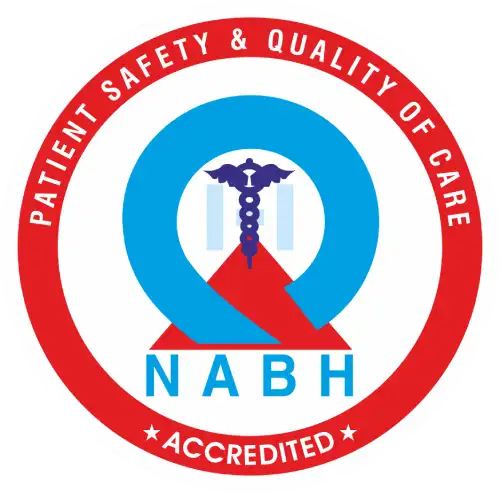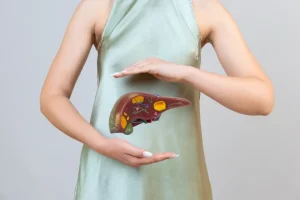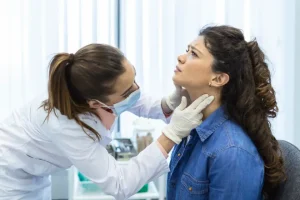Sudden Cardiac Arrest: Causes, Symptoms, and Prevention Strategies
The thought of sudden cardiac arrest can stop an Indian in their tracks. And it’s no surprise: this silent killer has been on the rise in India in recent years,…
By Aadicura | 31 March 2023The thought of sudden cardiac arrest can stop an Indian in their tracks. And it’s no surprise: this silent killer has been on the rise in India in recent years, and it’s become a major source of concern for the health-conscious population.
Some people believe that sudden cardiac arrest only affects the elderly or the infirm, but this couldn’t be further from the truth. As our cardiologist in Vadodara at Aadicura Superspeciality hospital confirms that with rising stress levels, poor diets, and sedentary lifestyles, even young and seemingly healthy people are at risk.
Let us now understand what is sudden cardiac arrest (SCA)?. It is a life-threatening condition that occurs when the heart suddenly and unexpectedly stops beating. This can happen when the heart’s electrical system malfunctions, causing an abnormal heart rhythm (arrhythmia). When the heart stops beating, blood stops flowing to the brain and other vital organs, and if not treated immediately, it can lead to death. Such situations are complex and need urgent attention. Aadicura Superspeciality Hospital is one of the most well-equipped hospitals to handle such medical emergencies efficiently and is considered as one of the Best Heart Hospital in Vadodara.
Unlike a heart attack, which is caused by a blockage in one of the arteries that supply blood to the heart, SCA can happen to people who appear to be healthy and have no previous symptoms of heart disease. SCA can occur in people of any age, including children, and it can happen at any time, including during sleep.
Symptoms of Sudden Cardiac Arrest:
The symptoms of SCA are sudden and may include:
- Loss of consciousness
- Absence of pulse
- Breathing difficulty or gasping for air
- Chest pain or discomfort
FAQ’S
How can you prevent sudden cardiac arrest?
There are several ways to prevent sudden cardiac arrest (SCA). Here are some strategies:
● Maintain a healthy lifestyle: Engage in regular physical activity, eat a healthy and balanced diet, and avoid smoking and excessive alcohol consumption.
● Get regular check-ups: Regular check-ups with your doctor can help detect any underlying conditions that could lead to SCA, such as high blood pressure, diabetes, or high cholesterol.
● Manage chronic conditions: If you have an existing chronic condition like high blood pressure, diabetes, or high cholesterol, manage these conditions to reduce the risk of SCA.
● Learn CPR: Knowing how to perform CPR (cardiopulmonary resuscitation) can help you respond effectively in an emergency situation and potentially save a life.
● Wear a medical alert bracelet: Wearing a medical alert bracelet that indicates your medical conditions or allergies can help emergency responders provide appropriate care.
● Use an implantable cardioverter-defibrillator (ICD): An ICD is a device implanted in the chest that can detect irregular heartbeats and deliver an electric shock to restore a normal rhythm. This device is recommended for people at high risk of SCA. However this requires expert evaluation by a cardiologist who can provide accurate guidance.
● Avoid illicit drug use: Some drugs, such as cocaine and amphetamines, can increase the risk of SCA.
● Manage stress: High levels of stress can increase the risk of heart disease, which is a leading cause of SCA. Find healthy ways to manage stress, such as exercise, meditation, or talking with a mental health professional.
● It’s important to remember that while these strategies can help prevent SCA, sometimes it can occur without warning. If you or someone else experiences symptoms of SCA, we advise you to call Aadicura Hospital which is a heart hospital in Vadodara for emergency medical assistance immediately.
Who is at risk of cardiac arrest?
Cardiac arrest can happen to anyone, but there are certain risk factors that increase the likelihood of experiencing a cardiac arrest. Some common risk factors as mentioned by the best heart specialist in Vadodara at Aadicura Superspeciality hospital include:
● Age: The risk of cardiac arrest increases as people get older.
● Gender: Men are more likely to experience cardiac arrest than women.
● Family history: A family history of cardiac arrest or sudden cardiac death can increase the risk of cardiac arrest.
● History of heart disease: People with a history of heart disease, such as coronary artery disease, heart attack, or heart failure, are at higher risk of cardiac arrest.
● High blood pressure: High blood pressure can increase the risk of cardiac arrest.
● High cholesterol: High levels of cholesterol can lead to the buildup of plaque in the arteries, increasing the risk of cardiac arrest.
● Diabetes: Diabetes can damage the blood vessels and nerves that control the heart, increasing the risk of cardiac arrest.
● Smoking: Smoking damages the blood vessels and can increase the risk of cardiac arrest.
● Obesity: Being overweight or obese can increase the risk of heart disease, which can lead to cardiac arrest.
● Physical inactivity: A sedentary lifestyle can increase the risk of heart disease, which can lead to cardiac arrest.
What is the reason for sudden cardiac arrest?
Causes:
- Heart Disease: Coronary artery disease, heart attack, heart valve disease, or arrhythmia can cause sudden cardiac arrest.
- Genetics: Some people may inherit an abnormal heart rhythm, which can lead to SCA.
- Electrolyte Imbalance: Electrolytes like potassium and magnesium help to regulate the heart’s rhythm. An imbalance in these electrolytes can cause SCA.
- Drug Abuse: Stimulants like cocaine and amphetamines can cause the heart to beat irregularly, leading to SCA.
- Trauma: A sudden impact to the chest can cause the heart to stop beating.
Are there warning signs before cardiac arrest?
In many cases, sudden cardiac arrest (SCA) occurs without any warning signs or symptoms. However, in some cases, people may experience warning signs before an episode of SCA.
● Chest pain or discomfort
● Shortness of breath
● Heart palpitations
● Dizziness or lightheadedness
● Nausea or vomiting
● Fatigue or weakness
It’s important to remember that these warning signs can also be symptoms of other conditions, so it’s important to seek medical attention if you experience any of them. If you or someone else experiences sudden chest pain, shortness of breath, or loss of consciousness, call for emergency medical assistance immediately at Aadicura Superspeciality hospial, which is considered as one of the best cardiac hospital in Vadodara with team of expert cardiac specialist, multidisciplinary approach and patient centred care.








